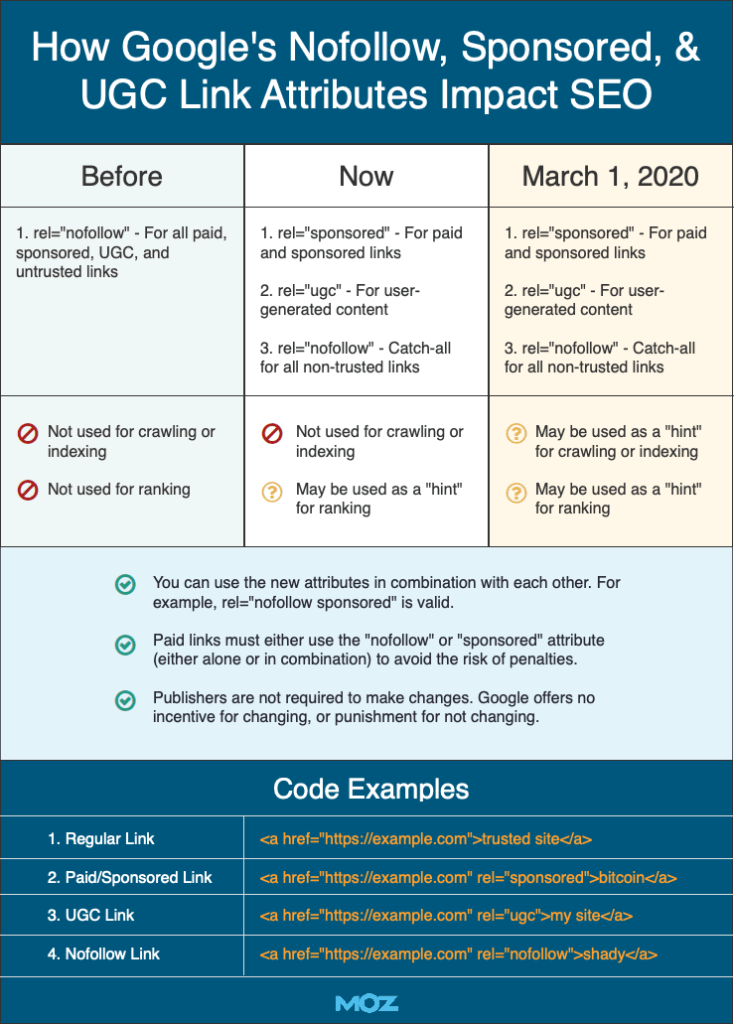15 years ago, Google introduced the tag “nofollow” to deal with comment spam on the blog. There has been a lot of change on the internet since that time. Google also needed to change the “nofollow” tag in the commentary. Google has done so this time. Also came up with two new “link tags”.
Generally, we use the “nofollow” tag to indicate to Google bots that this link does not need to be followed; I didn’t create links to pass any kind of “link juice”.
Regardless of the site that links to it using the “nofollow” tag, Google search bots refrain from giving them any link credit. When someone adds a link to a site’s comment, that link is automatically added to the “nofollow” attribute. Because of this, no one now makes unnecessary comments on the site. Because, if you use the link in the comment, Google does not give any credit to the linked site.
For this reason, we add “nofollow” tags to all links, such as sponsored links, advertising, or affiliate links. We need to link them, and so do we, but we do not want Google to pass the credit/ranking of my page to the linking site.
On September 28, Google introduced two new tags for linking, the “sponsored” and the “ugc“.
Previously Google only used the rel="nofollow" attribute, but Google bot would now identify or honor both rel="sponsored" and rel="ugc" tags.

rel=”sponsored”
If a link is intended for advertising or money, then all those links must use this sponsored tag/attribute. Simply put, what you stand for is that if you publish a “paid guest post” on your website, the site you are about to link to, has been asked by Google, to use this attribute.
Does this mean Google is having trouble recognizing paid links? Because now everyone links to other paid sites using the “dofollow” attribute.
<a href=“https://examplesite.com” rel=“sponsored”>Link to Site</a>
rel=”ugc”
“ugc” stands for “User Generated Content”. That means, if someone posts or comments on your blog or forum for free and uses a link there, Google wants you to mark it with this tag.
<a href=“https://examplesite.com” rel=“ugc”>Example Site</a>
What to do with my previous links?
Now the question may arise, what happens to my previous “nofollow” links? Do they need to be changed?
definitely, the answer is “no”. Keep the previous link as it was. Google didn’t exclude “nofollow”. Google brings two new tags so that Google bots can get a better idea about the link.
Again, the question may arise in the mind of many, can I use multiple tags in one link?
Previously we saw that we could use the “norefferer nofollow” attributes in the link. Now, if you want, you can use these newly introduced two attributes with them. You can even use rel=”nofollow ugc” this way.
Many manage their affiliate sites with Amazon products. They may be wondering, if should they use the attribute rel=”sponsored” instead of rel=”nofollow” on-site linking.
From the launch of “sponsored” and “ugc”, Google wants to let you know that you do. The evolution of this new tag is why all sponsored or advertising links can be recognized by Google. Experts, however, are of the opinion that the links should remain as they are (rel=”nofollow”). Because it is not yet certain whether all the search engines will recognize this new tag or not.
Google wants you to use rel=”sponsored” for sponsored or advertising links. However, Google has no objection to using “nofollow” as before.
My personal opinion is that I’m not interested in using sponsored tags. By no means do I want to link to my site with a “sponsored” tag.
Google originally made this change for its own internal link bots. These tags will make Google work a whole lot easier when it comes to making the web a better place.
As a site owner, you need to look to the future for how much you benefit from these tags. However, it can never be said that Google will penalize those who do not use tags properly.


Leave Your Comment